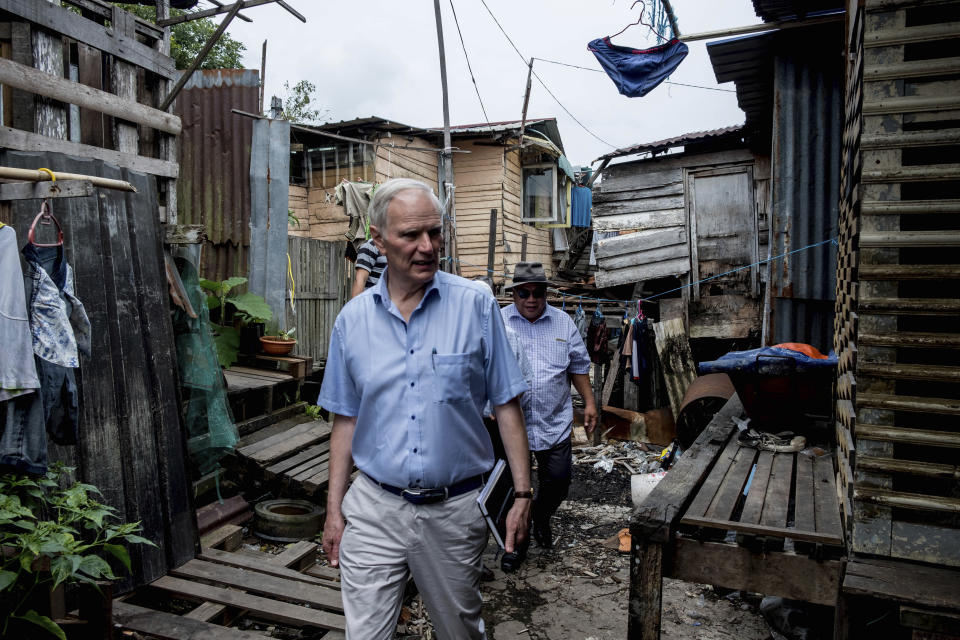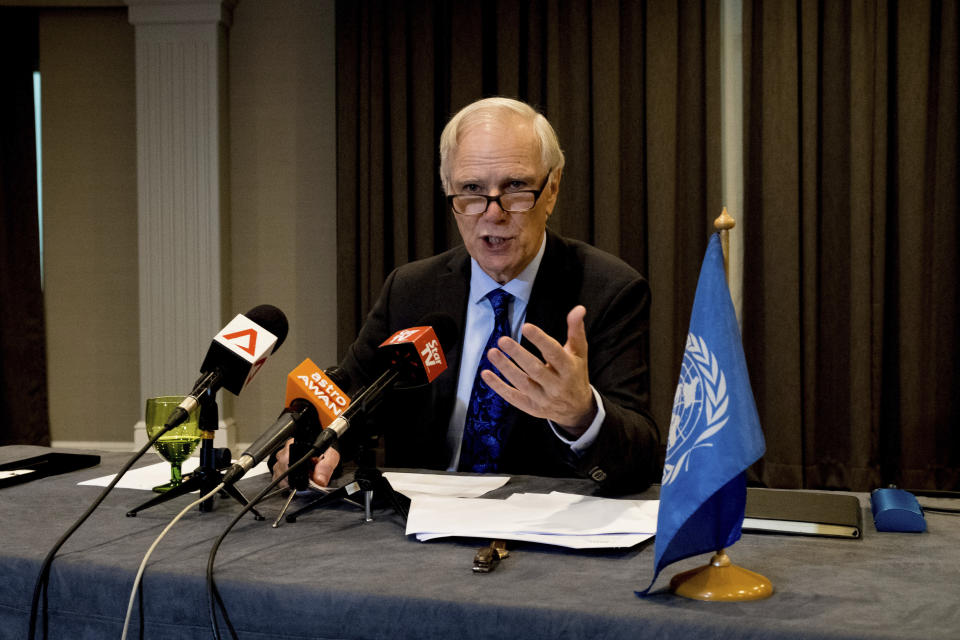UN envoy challenges Malaysia's claim to near zero poverty
KUALA LUMPUR, Malaysia (AP) — A U.N. special rapporteur challenged Malaysia's claim to have nearly ended poverty, saying an estimated one in six people in the Southeast Asian country are still considered poor.
Malaysia's official poverty rate fell from 49% in 1970 to just 0.4% in 2016.
Philip Alston, the U.N. rapporteur on extreme poverty and human rights, said Friday the rate was "extremely artificial," doesn't reflect the cost of living and excluded vulnerable populations.
Economic Minister Azmin Ali defended the government's assessment, saying it was based on internationally accepted standards.
He said in a statement that Alston's comments that a sizeable part of the population struggles to get by was baseless and uncalled for.
"The government is committed to address the remaining pockets of poverty and deprivation across regions and communities," he said.
Alston said the national poverty line of 980 ringgit ($235) per household a month is "tragically low" as it would mean an urban family of four surviving on under $2 per person daily.
"While Malaysia has achieved undeniably impressive growth in reducing poverty in the last 50 years, the official claim that poverty has been eradicated or exists merely in small pockets in rural areas, is incorrect and has crippled policymaking," Alston told a news conference.
He said urban hardship is apparent and that indigenous people, who are 13% of Malaysia's 32 million people, have the highest poverty rate and are being left behind, he said.
Millions of non-citizens including migrants, refugees and stateless people who can't work legally and have no access to public schools and health care are also excluded from Malaysia's data, he said.
Undercounting poverty means Malaysia underinvests in poverty reduction and in social protection programs that would ensure adequate food, housing, education and health care, he said.
"The government should urgently revise the way it measures poverty to bring it into line with the country's cost of living, and it should include vulnerable non-citizen groups in the new measure," he said.
Alson, who met with various communities in several states on his 11-day visit, said he had difficulty getting official data crucial to understanding poverty and urged the government to be more transparent.
He said Malaysians deserved better than to be told poverty does not exist. "Malaysia has made real progress on a range of progressive commitments, but the new government should not deny the existence of the poor and marginalized. Instead, it should step up efforts to fulfil their rights."




